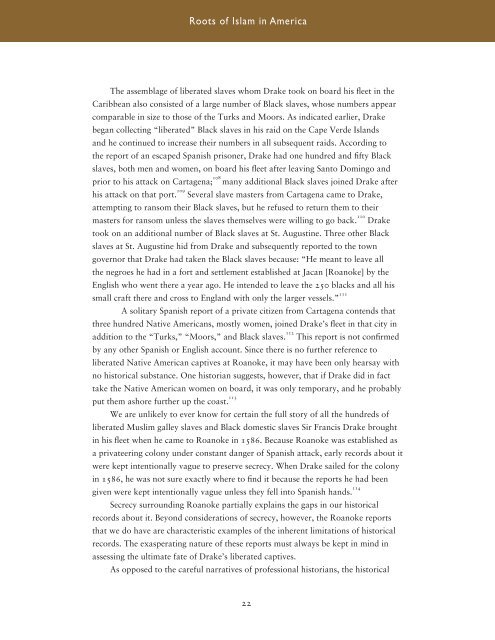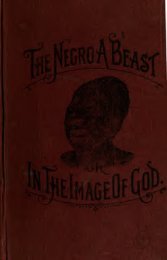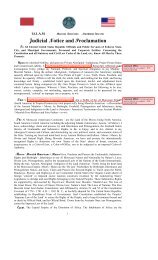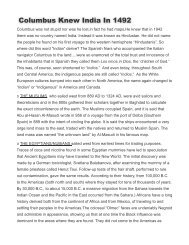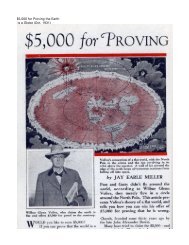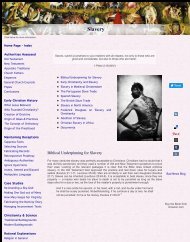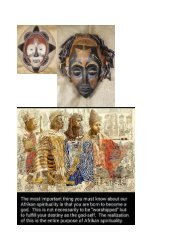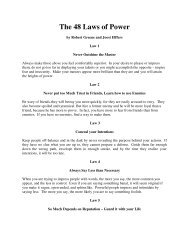Turks,Moors,& Moriscos in Early America
You also want an ePaper? Increase the reach of your titles
YUMPU automatically turns print PDFs into web optimized ePapers that Google loves.
!""#$%"&%'$()*%+,%-*./+0)<br />
The assemblage of liberated slaves whom Drake took on board his fleet <strong>in</strong> the<br />
Caribbean also consisted of a large number of Black slaves, whose numbers appear<br />
comparable <strong>in</strong> size to those of the <strong>Turks</strong> and <strong>Moors</strong>. As <strong>in</strong>dicated earlier, Drake<br />
began collect<strong>in</strong>g “liberated” Black slaves <strong>in</strong> his raid on the Cape Verde Islands<br />
and he cont<strong>in</strong>ued to <strong>in</strong>crease their numbers <strong>in</strong> all subsequent raids. Accord<strong>in</strong>g to<br />
the report of an escaped Spanish prisoner, Drake had one hundred and fifty Black<br />
slaves, both men and women, on board his fleet after leav<strong>in</strong>g Santo Dom<strong>in</strong>go and<br />
prior to his attack on Cartagena; 108 many additional Black slaves jo<strong>in</strong>ed Drake after<br />
his attack on that port. 109 Several slave masters from Cartagena came to Drake,<br />
attempt<strong>in</strong>g to ransom their Black slaves, but he refused to return them to their<br />
masters for ransom unless the slaves themselves were will<strong>in</strong>g to go back. 110 Drake<br />
took on an additional number of Black slaves at St. August<strong>in</strong>e. Three other Black<br />
slaves at St. August<strong>in</strong>e hid from Drake and subsequently reported to the town<br />
governor that Drake had taken the Black slaves because: “He meant to leave all<br />
the negroes he had <strong>in</strong> a fort and settlement established at Jacan [Roanoke] by the<br />
English who went there a year ago. He <strong>in</strong>tended to leave the 250 blacks and all his<br />
small craft there and cross to England with only the larger vessels.” 111<br />
A solitary Spanish report of a private citizen from Cartagena contends that<br />
three hundred Native <strong>America</strong>ns, mostly women, jo<strong>in</strong>ed Drake’s fleet <strong>in</strong> that city <strong>in</strong><br />
addition to the “<strong>Turks</strong>,” “<strong>Moors</strong>,” and Black slaves. 112 This report is not confirmed<br />
by any other Spanish or English account. S<strong>in</strong>ce there is no further reference to<br />
liberated Native <strong>America</strong>n captives at Roanoke, it may have been only hearsay with<br />
no historical substance. One historian suggests, however, that if Drake did <strong>in</strong> fact<br />
take the Native <strong>America</strong>n women on board, it was only temporary, and he probably<br />
put them ashore further up the coast. 113<br />
We are unlikely to ever know for certa<strong>in</strong> the full story of all the hundreds of<br />
liberated Muslim galley slaves and Black domestic slaves Sir Francis Drake brought<br />
<strong>in</strong> his fleet when he came to Roanoke <strong>in</strong> 1586. Because Roanoke was established as<br />
a privateer<strong>in</strong>g colony under constant danger of Spanish attack, early records about it<br />
were kept <strong>in</strong>tentionally vague to preserve secrecy. When Drake sailed for the colony<br />
<strong>in</strong> 1586, he was not sure exactly where to f<strong>in</strong>d it because the reports he had been<br />
given were kept <strong>in</strong>tentionally vague unless they fell <strong>in</strong>to Spanish hands. 114<br />
Secrecy surround<strong>in</strong>g Roanoke partially expla<strong>in</strong>s the gaps <strong>in</strong> our historical<br />
records about it. Beyond considerations of secrecy, however, the Roanoke reports<br />
that we do have are characteristic examples of the <strong>in</strong>herent limitations of historical<br />
records. The exasperat<strong>in</strong>g nature of these reports must always be kept <strong>in</strong> m<strong>in</strong>d <strong>in</strong><br />
assess<strong>in</strong>g the ultimate fate of Drake’s liberated captives.<br />
As opposed to the careful narratives of professional historians, the historical<br />
22


